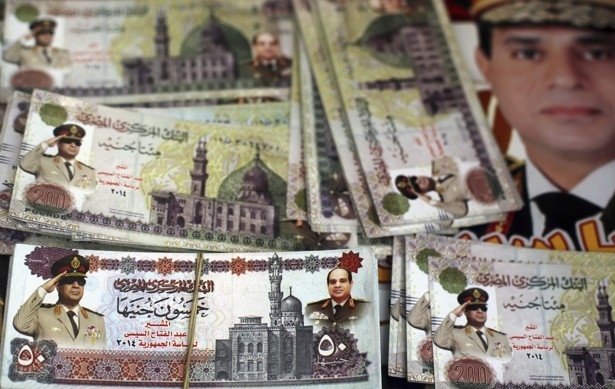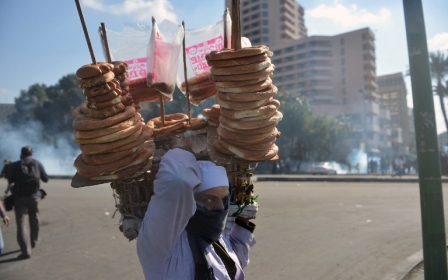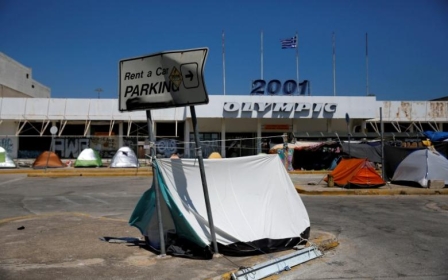Egypt's Sisi defends 'tough but unavoidable' economic reforms ahead of IMF loan

Egypt's President Abdel Fattah al-Sisi has defended what he described as "tough but unavoidable" reforms ahead of a $12bn International Monetary Fund loan to revive his country's ailing economy.
"The reforms are tough but they're unavoidable to save the economic situation," Sisi said in an interview published on Saturday by state newspapers.
In exchange for the IMF loan, Egypt is expected to adopt drastic reforms to increase public revenues and reduce state subsidies, which make up 7.9 percent of government spending.
Sisi described a "programme for real reforms that aims to provide subsidies to those who deserve them and no one else," promising "protection for those with low incomes".
The former army chief, who became president in 2014 less than a year after toppling Muslim Brotherhood president Mohamed Morsi, also defended the army's participation in large-scale projects touted as part of the country's recovery plan.
"The army is playing an important role in development, but this role will diminish in the coming years when it will have finished its plan for the reconstruction of state infrastructures," he said.
The military, which has produced all but one president since 1952, has for decades played a key economic role, producing everything from washing machines to pasta alongside building roads and operating gas stations.
The president also justified military spending including on two Mistral helicopter carriers from France on the need to defend a recently discovered gas field in Egypt's territorial waters.
"We have gas fields more than 200 kilometres off our shores such as the Zohr field and others. We need to be able to secure and protect them," he said.
Italian energy giant Eni in August announced the discovery of Zohr, the "largest ever" offshore natural gas field in the Mediterranean, with a potential 30 trillion cubic feet (850 billion cubic metres) of gas in about 100 square kilometres.
"The cost of a Mistral is equivalent to one month's revenues from the Zohr gas field," Sisi said.
Egypt's parliament in August passed a law on value-added tax, one of the reforms promised in exchange for the IMF loan, to be set at 13 percent for 2016-17 and 14 percent for the following fiscal year.
The VAT replaces a sales tax of 10 percent. The government says about 50 services and products, including bread, will be exempt.
Middle East Eye propose une couverture et une analyse indépendantes et incomparables du Moyen-Orient, de l’Afrique du Nord et d’autres régions du monde. Pour en savoir plus sur la reprise de ce contenu et les frais qui s’appliquent, veuillez remplir ce formulaire [en anglais]. Pour en savoir plus sur MEE, cliquez ici [en anglais].




